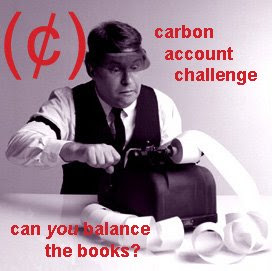Educating Myself About Plastics
It continues to amaze me how much I am learning about green living. One of the most fascinating areas is plastic. I never thought much about plastic before -- nothing bad, that is. In fact, I loved Ziplock Bags, Dollar Store Toys and Saran Wrap. However, the more I read, the more concerned I become about its devastating effect on our planet.
Let's just start with the fact that plastic is forever. What I used to consider the freedom of disposability, I now view as a long term commitment. Because, you know what? That $15 "Webslinger" I got at Walmart will outlive me, my kids and my grandchilren. It will not biodegrade, it cannot be recycled, and it can't be burned. The best I can hope for is that it does find it's way to a secure landfill where its petroleum-based plastic toxins will not eventually leak out.
According to Ocean Champions, every bit of plastic ever made still exists. That is a scary thought, when you think about it. Plastic is not biodegradable but it is photodegradable. That is, sunlight breaks plastic down to very tiny pieces, leaving its molecular structure intact. Those pieces of plastic, big or small, eventually find their way to the ocean and begin a journey through every conceivable corner of our ocean’s ecosystems.
Pollution from plastic debris is now wreaking havoc on our oceans. Because plastic pieces break down to so many sizes and exist in such a variety of colors, many marine animals mistake them for food and die with bellies full of bottle caps, lighters and other inedible scraps. If you're up for it, you can see video of an albatross necropsy here. Beware though, it is not for the faint of heart. Over 300 pieces of plastic were found in the poor animal.
Plastics in the ocean also leach deadly chemicals - into the water and the bodies of marine animals. The chemicals that give plastic its flexible, durable properties can affect creatures coming into contact with them in horrible ways.
According to the Monterey County Weekly, virtually every kind of petroleum-based plastic leaches chemicals into the substances it encounters. Some of the chemicals added to make plastic products more flexible, durable and flame-retardant are suspected endocrine disrupters and hormone mimickers that can affect the development of creatures exposed to them. For example, recent research has linked bisphenol-A exposure with early breast development and menstruation in girls, feminine characteristics in boys, and decreased fertility in both sexes.
Manufacturers make 60 billion tons of plastic every year, the majority of it for products that will be used once and thrown away.
One obvious solution is more recycling, but that’s tricky. Americans currently recycle less than 5% of their plastic waste, largely because only products coded #1 and #2— milk jugs, soda and water bottles— melt at low temperatures. However, even these can’t be re-used as food containers because chemicals and residues stay in the plastic and the quality degrades, so they’re destined to become less intimate products like furniture, carpet and fleece clothing. Higher codes, including polypropylene stuff like bottle caps, need high temperatures to melt. The toxic emissions they release make them virtually unrecyclable.
I know I'm throwing a lot of information out there, without telling you what I'm going to do about it. Well, the first step is education. Now I know how damaging plastics are to our environment, and I can make better informed decisions.
You can bet I won't be buying anymore Ziplock baggies or Saran Wrap. I'm going to purchase either used toys (recycling them :-) or toys made from natural, biodegradable materials. When given the choice between a plastic soda bottle or aluminum can, I'll choose the 100% recyclable can and I'll buy it in a cardboard-enclosed box, rather than a six-pack held together by plastic. And I will continue my work picking up litter left by jerks and the ignorant.
Savings:
If I save just one bird or whale or fish, I'll be happy.
Difficulty Level: 3 out of 5
Disposability has become the American lifestyle. This is going to be a difficult task, to give up ALL disposable plastic products and refrain from purchasing non-recyclable plastics. But I've already changed my DISPOSABLE ATTITUDE and that's half the battle.
Thursday, July 12, 2007
Day Eighteen - The Great Plastic Controversy - Part I
Subscribe to:
Post Comments (Atom)









2 comments:
It always amazes me when I see people swigging plastic bottled water — can't they taste the plastic that has permeated the water? I will die without having ever purchased water that way — it is just a distraction from our responsibility for the pollution of the earth's blood stream.
http://www.dailymail.co.uk/pages/live/articles/news/worldnews.html?in_article_id=460077&in_page_id=1811
This could make you cry...
And so can this...
http://bop.nppa.org/2007/still_photography/winners/EPS/90386/167421.html
This guy, Chad Pregracke, should be next in line for sainthood...
http://www.livinglandsandwaters.org/About/chad.htm
Post a Comment